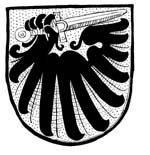
Dale Vree: A Remembrance
A LIFE UNLIKE ANY OTHER
How do you sum up a life? It’s rarely an easy task. For a man like Dale Vree, the task is especially challenging. For one thing, Dale was unique; his life was unique. He was many things to many people, yet he was always true to himself and his beliefs. But his beliefs changed over time (or “evolved,” in today’s parlance). So to describe his life, it helps to mark the stages of his life based on his “conversions” — yes, in the plural.
Before we can begin, however, we must ask why it is necessary to remember Dale Vree in these pages. Simply put, he was editor of the New Oxford Review for over three decades, and his vision for this magazine and his leadership over the years inform everything it does. He was a public figure, yes, but one who eschewed fame and notoriety. He let his work speak for itself, rather than having his work speak of himself. To many observers, he was, therefore, enigmatic, a figure who defied easy description. A man of his time, he liked to call himself a radical. And then one day his work ceased and his voice went silent. He spent the last decade of his life in obscurity, suffering the ravages of a disease called primary progressive aphasia. He died this past December in the loving embrace of the Catholic Church, sustained and sent forth by her sublime sacraments.
So, who was Dale Vree?
Now we must speak of those conversions. Dale was raised in southern California in the Dutch Reformed Church. When he came of age in the early 1960s, Dale rejected what he saw as the self-satisfied, comfortable Christianity this confession represented. So he made his first move: to the Episcopal Church, which then boasted a more heavenly directed, high-church form of worship and a notable concern for the poor. But the working-class sensibility he inherited from his father and his father’s father pulled at him, as did the aspirations of higher education instilled in him by his mother. So he made his next move: going up to Berkeley to study political science, where he embraced a doctrinaire form of Marxism that preached solidarity, discipline, and the equality of man.
As a student radical, Dale participated in the Free Speech Movement. But he soon became disillusioned by the moral corruption and lack of discipline in what came to be called the New Left. Its denizens were largely concerned with their own self-interest, not serving others. As St. Paul would say, “Their god is their stomach” (Phil. 3:19). They offered no hope of creating a society based on the communist ideal of the common good of all men.
You May Also Enjoy
Brownson certainly didn’t become a Catholic in 1844 because it was a socially estimable thing to do.
Tate was a critic, poet, novelist, and intellectual of the first rank. Neglect of his work today is due in large part to his conversion to Catholicism.
We studied the issues in both Scripture and history and came to the conclusion that the East was correct on both the papacy and the filioque.

